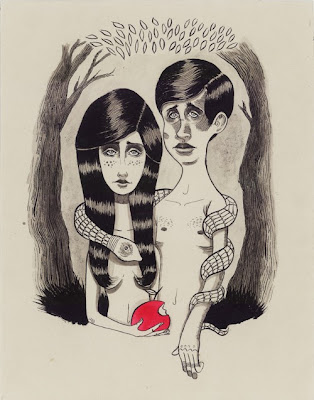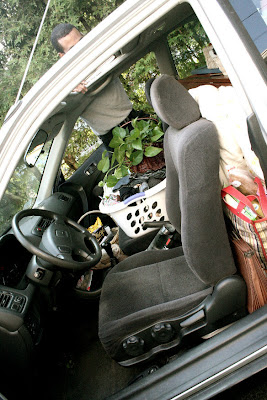HOW TO SAVE CIVILIZATION
I suppose that on St. Patricks Day we should wear green and drink ale and find four leafed clovers. I did none of the above because I don't own a green shirt, ale tastes like socks worn three days straight, and my aunt and dead brother are the only people in my family who ever had a knack for seeing the leaves for the forest, or however the adage doesn't go.
Instead I went to church because it is Saturday night and that's when I go to church.
We are studying Galatians, expository fashion, verse by verse, and it has been very helpful. Also apropos for today, I lean over to my friend and whisper, as the Irish were from Galatia. I don't think she believes me, but she gives a polite nod. After that I wonder if I should believe me too.
But it's true. I read a book a few years ago, How the Irish Saved Civilization, an easily fascinating historical delve that would make any Irishman hook his thumbs behind his suspenders and leap a little higher with pride. I suppose I ought to count myself in that group, but I'm plumb out of suspenders.
Tonight's reading, from Chapter 3, is when Paul goes all mad-professorial on those Galatians, ranting about their foolishness and giving them historical evidence, as well as faith evidence (if such a thing is possible), for the finished work of the gospel. Paul was telling those Galatians that they could not save anything, let alone civilization, and certainly not their own souls.
Isn't it nearly a miracle then, I think on my way home, that those with whom Paul was furious because of their foolish attempts to do, do, do, would be the ones who, in a way, saved the rest of us with what they did?
Inside of me, the Irish part of me perhaps, but the human part of me for sure, there is a nature that does; it checks off lists and tally marks accomplishments and makes plans and rarely truly hopes in God. But there is another part of me that aches so deeply to know the truth of what Paul was telling those in the church at Galatia: what you do holds weight, but only because God, in his grace, has given it to you to hold and steward. It matters, but only because of what He did, only because He counted it as righteousness.
Those foolish Galatians must have finally understood that—understood that they were a people with a work ethic, but also a people with a message worth saving, treasuring, and keeping. And so, because they realized they couldn't save their souls, they saved civilization instead.
Happy St. Patrick's Day.
Go celebrate some common grace today.


















